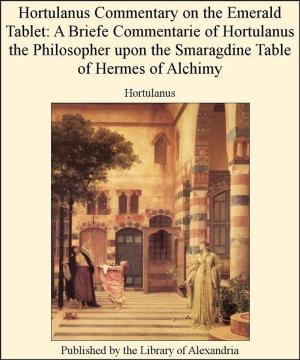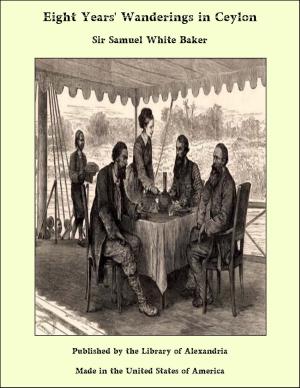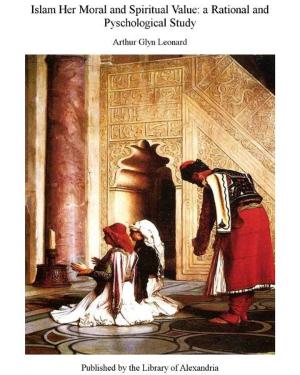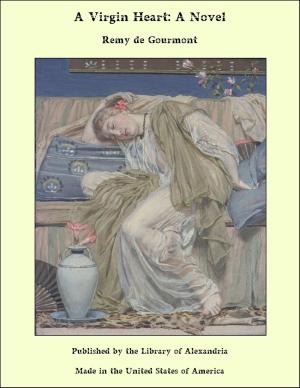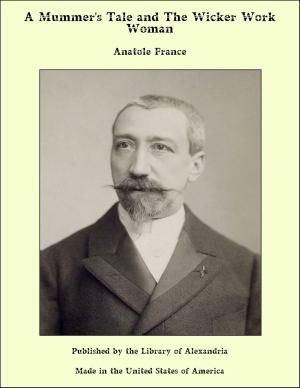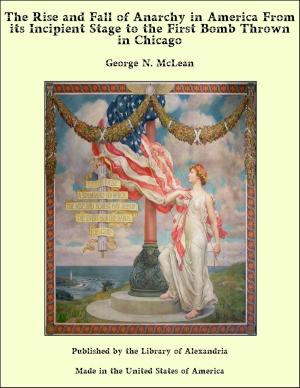The Complete Earl of Chesterfield Works
Nonfiction, Religion & Spirituality, New Age, History, Fiction & Literature| Author: | Earl of Philip Dormer Stanhope Chesterfield | ISBN: | 9781465510631 |
| Publisher: | Library of Alexandria | Publication: | March 8, 2015 |
| Imprint: | Language: | English |
| Author: | Earl of Philip Dormer Stanhope Chesterfield |
| ISBN: | 9781465510631 |
| Publisher: | Library of Alexandria |
| Publication: | March 8, 2015 |
| Imprint: | |
| Language: | English |
The proud Lord Chesterfield would have turned in his grave had he known that he was to go down to posterity as a teacher and preacher of the gospel of not grace, but—"the graces, the graces, the graces." Natural gifts, social status, open opportunities, and his ambition, all conspired to destine him for high statesmanship. If anything was lacking in his qualifications, he had the pluck and good sense to work hard and persistently until the deficiency was made up. Something remained lacking, and not all his consummate mastery of arts could conceal that conspicuous want,—the want of heart. Teacher and preacher he assuredly is, and long will be, yet no thanks are his due from a posterity of the common people whom he so sublimely despised. His pious mission was not to raise the level of the multitude, but to lift a single individual upon a pedestal so high that his lowly origin should not betray itself. That individual was his, Lord Chesterfield's, illegitimate son, whose inferior blood should be given the true blue hue by concentrating upon him all the externals of aristocratic education. Never had pupil so devoted, persistent, lavish, and brilliant a guide, philosopher, and friend, for the parental relation was shrewdly merged in these. Never were devotion and uphill struggle against doubts of success more bitterly repaid. Philip Stanhope was born in 1732, when his father was thirty-eight. He absorbed readily enough the solids of the ideal education supplied him, but, by perversity of fate, he cared not a fig for "the graces, the graces, the graces," which his father so wisely deemed by far the superior qualities to be cultivated by the budding courtier and statesman. A few years of minor services to his country were rendered, though Chesterfield was breaking his substitute for a heart because his son could not or would not play the superfine gentleman—on the paternal model, and then came the news of his death, when only thirty-six.
The proud Lord Chesterfield would have turned in his grave had he known that he was to go down to posterity as a teacher and preacher of the gospel of not grace, but—"the graces, the graces, the graces." Natural gifts, social status, open opportunities, and his ambition, all conspired to destine him for high statesmanship. If anything was lacking in his qualifications, he had the pluck and good sense to work hard and persistently until the deficiency was made up. Something remained lacking, and not all his consummate mastery of arts could conceal that conspicuous want,—the want of heart. Teacher and preacher he assuredly is, and long will be, yet no thanks are his due from a posterity of the common people whom he so sublimely despised. His pious mission was not to raise the level of the multitude, but to lift a single individual upon a pedestal so high that his lowly origin should not betray itself. That individual was his, Lord Chesterfield's, illegitimate son, whose inferior blood should be given the true blue hue by concentrating upon him all the externals of aristocratic education. Never had pupil so devoted, persistent, lavish, and brilliant a guide, philosopher, and friend, for the parental relation was shrewdly merged in these. Never were devotion and uphill struggle against doubts of success more bitterly repaid. Philip Stanhope was born in 1732, when his father was thirty-eight. He absorbed readily enough the solids of the ideal education supplied him, but, by perversity of fate, he cared not a fig for "the graces, the graces, the graces," which his father so wisely deemed by far the superior qualities to be cultivated by the budding courtier and statesman. A few years of minor services to his country were rendered, though Chesterfield was breaking his substitute for a heart because his son could not or would not play the superfine gentleman—on the paternal model, and then came the news of his death, when only thirty-six.


